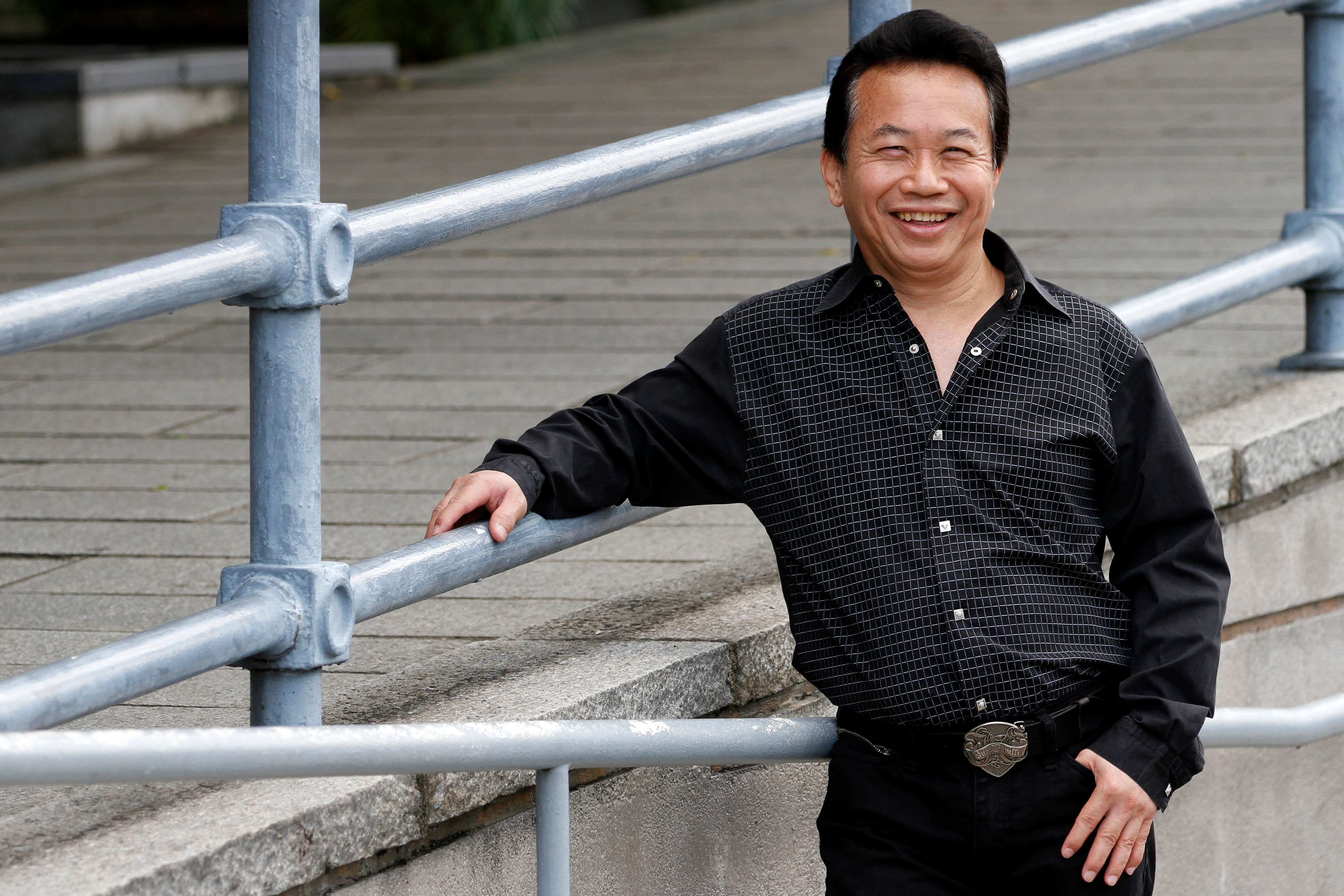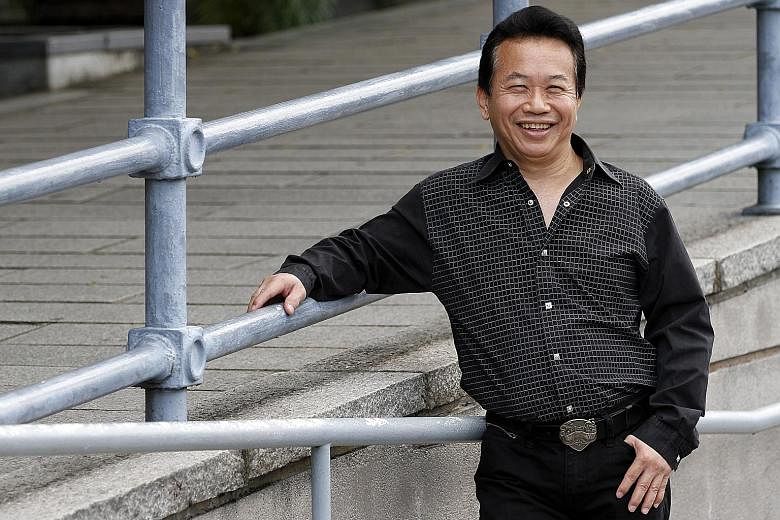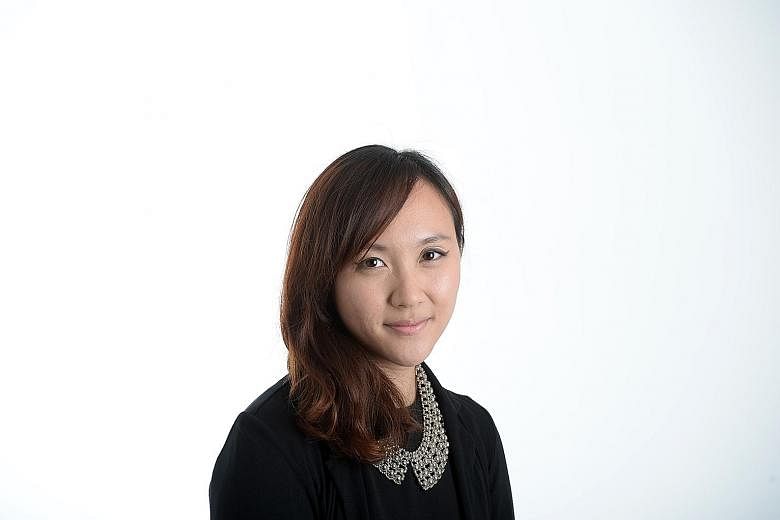It took a few false starts and decades, but business owner Allan Foo finally completed what he considers an important stage in his pursuit of education - a degree.
Not just any degree, but an Executive Master of Business Administration (EMBA) from Singapore Management University (SMU), which he obtained in 2012.
The EMBA is aimed at those in senior management positions, and Mr Foo, 63, not only made it to the Dean's List, but he was also conferred the Most Outstanding Student Award.
The managing director of women's wellness business Meijo Singapore did not get a chance to pursue further education after completing his A levels, as his family was going through tough times.
However, by good fortune, he was hired by the Chartered Bank (now Standard Chartered Bank) after national service.

He says: "The army found me a job at the Chartered Bank in the early '70s, and eight of us were hired from hundreds of applicants as management trainees."
Less than six months into the job, he left to become the sub-editor of the music bulletin for Yamaha Music (Asia).
"The mission was to bring a classroom music ensemble programme to the public schools, especially the poor neighbourhoods. Yamaha's experience with Japan's public education programme had shown that musical ensemble - using instruments like the harmonica and recorder - helped kids in especially poor communities improve their command of language and counting maths," says Mr Foo.
He adds that all this was in line with his ideals.
"When I left National Junior College (NJC), I was still idealistic, the world was black and white, and I wanted to go back and liberate Hainan from communism because I'm Hainanese.
"My father wanted me to be a doctor, but that was his dream, while my teachers wanted me to be a journalist or writer."
After working at Yamaha Music for several years, he felt the need to invest in his education, so he completed a diploma in management studies at SIM University, and it suggested he pursue a graduate diploma in marketing at the same time.
-
Worst and best bets
-
Q What has been your biggest investing mistake?
A The cars I have bought over the years. The pain is not just from one car. The whole scheme is relentless, tailored to make you pay. I have been driving since I was legally able to, I cannot imagine being without a car.
I have not had major mistakes as I am more conservative. I am amazed by people who have a fortune and then lose everything. There needs to be some delineation between investing and gambling.
Q And what has been your best investment move?
A In terms of capital gain, it would be the $2 million in a single transaction from selling the property in Seletar Hills.
In non-monetary terms, I would consider investing in education far more valuable than that $2 million.
My wife and I say that the children can study all they like and we will support them until the moment they finish their education. We do not believe we should spoil them.
It is important to us because our parents could not do that for us. In Pre-U Two, I was struggling to make ends meet, eating one meal a day, subsisting on cheap Thye Hong biscuits for the second meal. I even had to ration the biscuits.
After my son finished his double degree in 2014 and had to do his Bar, I supported him all the way until he started working.
(One of) the nicest things was him getting his first full pay a few months ago. He treated me to an expensive steak meal which cost $300 to $400. That felt good, eating something bought with his money, and knowing he could afford it.
Rachael Boon
Mr Foo did so well that the university also asked him to consider taking up a Master of Science in Management Studies, as his grades were good enough for him to apply for a scholarship.
The Skills Development Fund paid 75 per cent, and the company would need to pay only 25 per cent.
"I had to ask my company for permission," says the father of four - Haoren, 27, Xueping, 25, Liren, 21, and Meijo, 13. He is married to consultant therapist Angela, 49.
"I finished only one semester. I had a great time, judging by my grades, I had two As and a B. But that story came to an abrupt end as I was asked by my chairman, who signed the form, to quit.
"He spoke to me three times, that the company didn't need me to have a master's, or for career progression. He'd rather I devote my time to the company."
After 27 years and working his way up to be group marketing director, Mr Foo left Yamaha Music in 2001, shortly after Yamaha Corp took over the Asian operations, and he started Meijo Singapore in 2006.
Seeing his son pursue a double degree in law and business from SMU brought back the itch to study, and he decided to take the leap with the EMBA programme.
Mr Foo says: "I thought it was a completion of an investment in my education. I've always considered it important to invest in myself and my children and their education."
These days, he also invests his time and money as president of the EMBA alumni group, board member on the Lee Kong Chian School of Business' alumni council, and an SMU alumni ambassador.
"It's a natural extension of my award, which is a double-edged sword. I'm doing this voluntarily, and it allows me to meet young people like those in entrepreneur groups, to help undergrads who also want to start a business," says Mr Foo, who adds that meeting young people keeps him on his toes.
"When you keep in touch with young people, you benefit from closing the age divide too. I'm always learning, education doesn't stop with a degree."
Q Moneywise, what were your growing-up years like?
A My parents separated when I was still schooling. It was a bad time for me, I didn't get along with my parents, there were troubles at home and I had to live outside.
In NJC, I was fortunate to get to know the daughters of the late finance minister Hon Sui Sen, who found me a place to stay in Kingsmead Hall, which was for the overseas undergraduates of the National University of Singapore and home to about a dozen Asean scholars at NJC.
I was giving tuition at $1 per hour. My father, who was working in Hong Kong, sent very limited funds to cover my stay.
I considered life in national service very good, they fed me, gave me a place to stay, found me a job even.
I've a younger sister who emigrated to New Zealand and lives in Wellington, and a younger brother who also emigrated to work in the Hewlett-Packard headquarters in the United States.
Q How did you get interested in investing?
A I was appointed the co-executor of the estate of my father - who was very active in stocks and bonds - and I had to look after it. I found it a painful exercise, and stopped any trading soon after I was appointed.
After DBS Bank divested of its shares in Yamaha Music (Asia), Yamaha Corporation Japan decentralised operations and also divested of its non-core business such as Kinderland and Music Plaza. I had no regional portfolio to look after so I left in 2001.
I did management consultancy work before I started the skincare business in 2006, as the business was something I was familiar with.
I got interested in investing in education since I couldn't continue my studies after junior college, which was why less than six months into my job as a management trainee at the former Chartered Bank, I left to join Yahama Music.
My godsister, who was working with Yamaha Music (Asia), pestered me to meet Yo Kiang Beng, its chairman. The job he offered was something I was passionate about - education. I was to be the sub-editor of the music bulletin, and the editor would be the chairman.
I first invested in property after news that the Gulf War ended in 1990. I was in California when they announced it, and it meant prices were going to go up.
I bought a 4,000 sq ft semi-detached house in Seletar, which had a built-up area of 4,300 sq ft.
I paid only $853,000 in 1990 - that price was ridiculous - and sold that in 2010 for $2.7 million.
Q Describe your investing strategy.
A I'm the more conservative type of investor, and tend to play safe. That's why I don't take on high-risk investments. It's about a calculated approach. My wife is more gung-ho, once she makes a decision, she sticks to it.
That's why I started a business, because it's something I can control, and I prefer to invest in things like property than stocks, and more importantly, education and my children.
Q What's in your portfolio?
A Meijo, which was started with about $75,000 in 2006. I can't disclose figures but when we started, it was only two shop lots at The Riverwalk.
In 2011, the two lots next to us became vacant and the landlord asked us to take over, so we doubled our capacity. The total space is about 2,000 sq ft now.
I have a property in Bangsar, Kuala Lumpur, a nice condo unit across Bangsar shopping centre. It's a nice enclave.
When we decided to invest in property, we had to pay attention to the three rules: location, location, location.
We were mindful that Bangsar has access to the KL city centre, Petaling Jaya, highways, and a lot of the ministers and high-ranking civil servants live around there, so security would be better.
We bought it in 1995 for about RM400,000. In the first 10 years, we saw a more than 10 per cent return annually, in terms of rent.
Now, it's worth RM1 million (S$338,000). That's not good news because it's about RM3 to S$1 now, but if you forget that, it's decent.
I also consider education an investment in my portfolio because it pays me back in different ways.
The EMBA cost about $98,000 excluding airfare, but they covered accommodation and put us up in great locations, like a quarters for high-ranking communist officers in Peking University.
The Financial Times Executive MBA Ranking found us coming in 10th among Asian institutions last year, and 36th globally.
My next investment, since I graduated in 2012, is being heavily involved with alumni activities.
It hasn't "paid off" yet, but it's a long-term thing, and it's paying off in my continuing access to knowledge and networking - what will be useful in my career, business and thought process.
I used to have a condo unit in Eastpoint Green in Simei, which I sold in 2012 before the cooling measures kicked in, but it wasn't a major gain.
I thought the euro-zone troubles were going to trigger an economic downturn.
Q What does money mean to you?
A Money is a means to an end only.
The two men in my life - my mentor Mr Yo, died at 54 of cancer; and my father died at 57 of cancer.
My father used to preach that in search of wealth, don't forsake your health. Too often, I've seen people giving up not only their health, but also their family and friends, in search of wealth.
Q What's the most extravagant thing you have done?
A My wife and I both drive the Mercedes-Benz CLS 350. Hers is grey and mine is black, with more sporty accessories. It's really an indulgence. Just think about how much you're losing when you buy it.
Other indulgences are frivolous things like my new $6,000 gaming set-up. I play games like Skyrim and Call Of Duty.
I started gaming to bridge the gap between my son and me, and it's something he feels he can outdo me at, while I learn something from him too.
Q What are your immediate investment plans?
A I'm starting a new business dealing in the distribution of beauty devices. My daughter is now on a study trip with a key supplier in South Korea, which decided to take her under its wings.
I'll need about $100,000 for the initial stage. We are also liquid now, waiting for the right time to buy property.
Q How are you planning for retirement?
A Don't ever mention the word "retirement" to me, it's a taboo word.
I'm going to soldier on until my last breath.
I've seen too many instances of people who start looking backwards and stop looking forward as they get older.
That's why I love mixing with the SMU undergrads. Their energy rubs off on you.
Q Home is now...
A A 3,660 sq ft five-bedroom duplex, with a private enclosed swimming pool, garden patio and backyard, in the east. It can't get any better than that.



